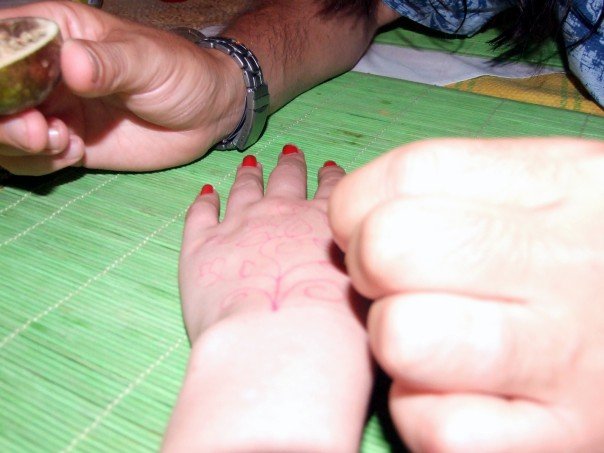
Natives in Ecuador's Amazon Rainforest use the juice of a local fruit to make temporary tattoos similar to henna tattoos
Tattoos are growing in popularity today and many young people want them, as a way to “express themselves.” Most Jewish people know about the Jewish taboo against tattoos but don’t understand it and even feel like a “Jewish” tattoo could connect them more with G-d.
But is this really true? Can a tattoo really connect you closer to Hashem (G-d)?
Many practices in Judaism are forbidden because they are associated with paganism and idol-worship: two of the biggest sins a Jew can commit. Maimonides, otherwise known as the Rambam, was a famous 12th century scholar of Jewish law and thought, who is one of the most respected commentators on the Torah and its laws. He explains that tattoos are forbidden because they are related to pagan rites. Pagans and idol worshipers used to use tattoos as ways of connecting to their “gods.” Hashem declared this practice is not how we are supposed to worship Him.
People deciding they want to use tattoos to feel “closer” to G-d is the result of emotions only. They may “feel” closer – but it actually brings them further from G-d.
So what is someone to do when they want a tattoo but also want to feel close to Hashem? There is a solution: Temporary tattoos! And I’m not talking about the ones you used to rub on your arm as a kid – I’m talking about the ancient and popular practice of henna tattooing.
In my travels, I have found temporary tattoos to be a popular alternative almost everywhere I’ve visited. In India and Nepal, henna tattoos are very common and extremely popular with the tourists. In the US, you can sit on any beach or stroll along any boardwalk and someone is bound to offer to do a henna tattoo for you. Even in the Amazon Rainforest, the local natives offered to give me a tattoo using the juice of a local fruit! Maybe during your travels you’ve seen henna tattoos and wondered if you’re allowed to get them – and you are!
Henna tattoos are permitted in Judaism because they disappear after 2-3 weeks. They’re not permanent and do not involve cutting the skin at all. Yet, they are popular and attractive, giving the impression of having a real tattoo – but it is one you can change whenever you you’d like. They’re a great solution to the problem of tattoos in Judaism!
Read More








